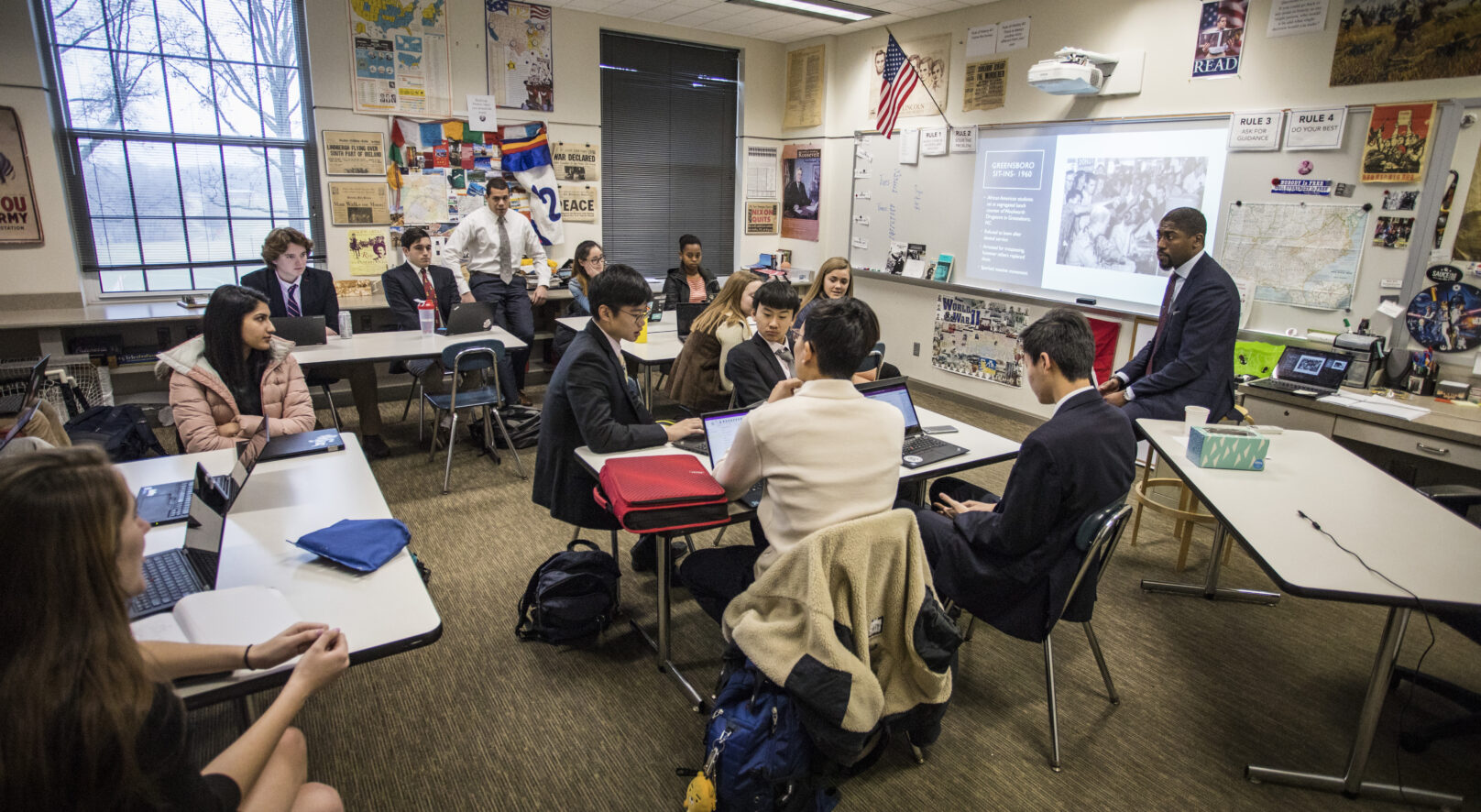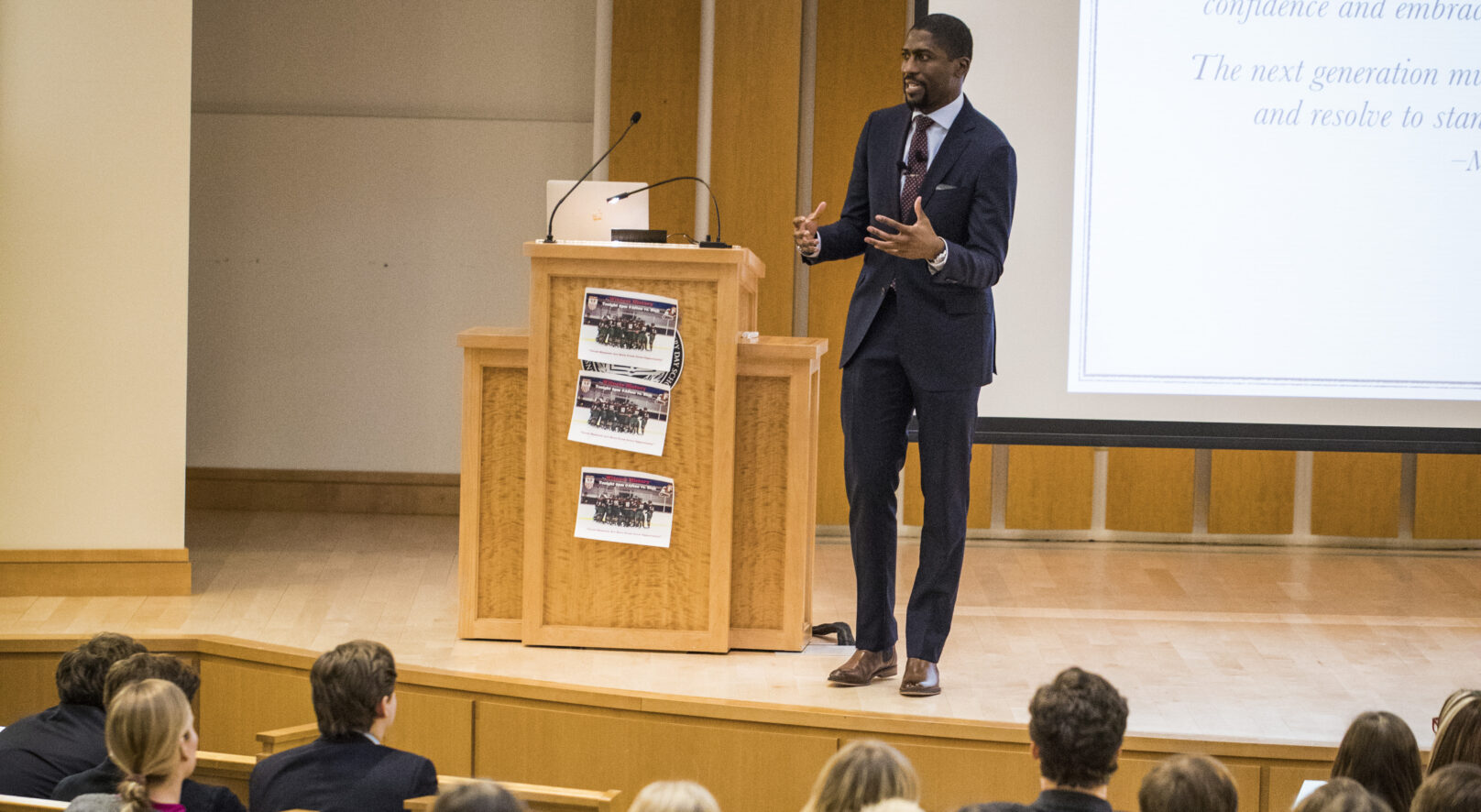Lessons from MLK: College as a Model of Democracy
January 13, 2023
Share

For many young people, college is their first time living away from home. Life on a university campus is a place where they interact with people from different backgrounds, expand their values and life experience, and develop as a member of civil society.
C&S Fellow Lerone A. Martin, recipient of a 2017 Nancy Weiss Malkiel Fellowship, uses his college classroom to introduce students to a host of historical conversation partners that they’ve never had. Dr. Martin notes: “As they confront problems in our society and our democracy, they can draw from our conversation partners and voices from the past.”
Dr. Martin is an associate professor of religious studies and the Martin Luther King, Jr. Centennial Chair and Director of the Martin Luther King, Jr. Research and Education Institute at Stanford University.
In addition to his research and teaching at Stanford, Dr. Martin also teaches through the Stanford College Prep Program that brings underserved high school students to campus to engage with new perspectives, knowledge, and experiences. He has also taught in high school and in prisons.
“I hope that my classroom functions as a laboratory of democracy,” says Dr. Martin. “Students debate in my class. They argue but must remain civil and try to find ways where their perspectives, which they thought maybe were completely opposite, might agree.”

Dr. Martin uses his classroom as a way for students to learn to navigate a “messy” democracy, full of differing opinions and priorities. Particularly for a generation that has grown up with social media as the prominent public square, Dr. Martin sees classroom discussions as a way to cultivate active listening, respectful disagreement, and productive conversations. He has students address each other by name, repeat what they heard, and then ask a question or pose an alternate view.
“It’s not, I want to shoot off my tweet or my statement or my post, and then I’m done,” he says. “The classroom must be a place where we try to model something different, model having civil dialogue around civic issues.”
Through his work with students and his scholarship of an adolescent Martin Luther King, Jr., Dr. Martin has been thinking about the formative experiences young people have when they leave home and how it shapes their views of the world. A new book project has Dr. Martin looking at the letters Dr. King wrote home during a teenage summer in Connecticut.
“I think the travel experience of getting outside of his own context really began to formulate his sense of freedom and equality,” says Dr. Martin of teenage Dr. King. In his letters, Dr. King wrote about having to transfer to a “colored” train car when they reached Washington, D.C. He went on to write about how angry he was about being segregated that way. He grappled with experiencing a part of the country that interacted on a mostly equal basis and then having that equality and freedom stripped away as he traveled south in the country.
Related: What MLK’s “I Have a Dream Speech” Says About Hope in Democracy“I am thinking about young adults and how their idea of democracy and inequality are formed,” says Dr. Martin. “Dr. King provides some lessons about the importance of travel, the importance of taking those young adults and helping them experience something they have never experienced before.”
“Sometimes that doesn’t have to be another part of the country,” continues Dr. Martin. “Sometimes they could simply be going onto a college campus at Stanford or at NYU or Columbia and seeing something different. What that does to help expand the imagination of a young adult or a child for democracy and equality is fascinating.”
These lessons from Martin Luther King’s formative years have relevance today, says Dr. Martin, especially when thinking about designing programs for young people and high schoolers. “All they know is what they see,” says Dr. Martin. “And if we can perhaps expand their imagination—that’s what happened to Martin Luther King that summer—their whole idea of what’s possible could be transformed.”
Stay Engaged
Get More News
Join our mailing list to get more news like this to your mailbox.
Support Our Work
Help us invest in the talent, ideas, and networks that will develop young people as effective, lifelong citizens.
Ways to Support Us